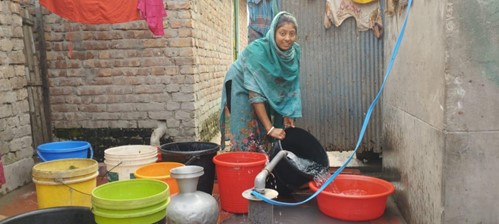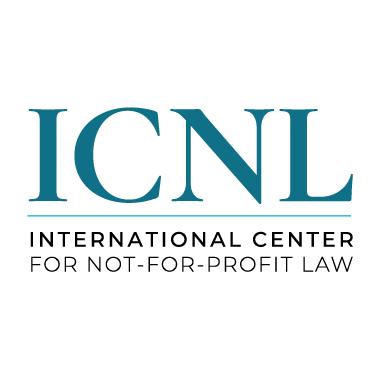Promoting Advocacy and Rights
Social and political strife hinder inclusive, transparent Bangladeshi institutions
Bangladesh, considered a rising star in South Asia, has showcased significant strides in its economic development throughout the past two decades. At the same time, social upheaval, political conflict, and a narrowing space for civil society pose major challenges, stalling the development of inclusive, transparent, and democratic institutions. Limited understanding of governmental regulation and oversight of civil society activities are broadly believed to have limited the civil society sector’s ability to pursue advocacy and rights-based campaigns.
Recognizing that a robust civil society is necessary for maintaining a peaceful and stable Bangladesh, the USAID-funded Promoting Advocacy and Rights (PAR) project, seeks to strengthen the enabling environment for sustained civil society institutions advancing democratic governance and citizen participation in Bangladesh. PAR engages civil society leaders and governmental stakeholders to review policies and practices affecting the sector, and to develop evidence-based recommendations and advocacy platforms for supporting an enabling environment for civic space where human rights are respected, and pluralistic traditions are maintained.

Priya Rani from Khulna with the freshwater tanks provided by the city after citizens advocated for swift action on water scarcity.
A strengthened Bangladeshi civil society advances good governance
The project will contribute to a more inclusive, resilient, and evidence-driven Bangladeshi civil society. By the end of the project, participating civil society organizations will have the skills, technology, resources, and connections that will enable them to work in partnership with the government of Bangladesh to advance inclusive, transparent, and responsive governance.
Program Focus
- Capacity strengthening: PAR strengthens advocacy skills and technical capabilities for Bangladeshi organizations, while also fostering opportunities for them to productively engage the government on a range of policy issues, including environmental pollution, unplanned urbanization, gender-based violence, and the rights of marginalized populations.
- Grants: PAR provides grants for local organizations to undertake activities which increase community awareness about civic rights and responsibilities, strengthen community mobilization efforts to include historically marginalized populations, and establish openings for public sector engagement.
- Advocacy: PAR supports Bangladeshi organizations to navigate the changing legal environment, protecting their ability to operate and advocate for democratic governance.
Enhanced civil society holds governments accountable
PAR has helped strengthen the enabling environment for civil society organizations to fulfill their core missions as advocates for inclusive governance, watchdogs, ethical guardians, and service providers across Bangladesh.
- Supported the capacity strengthening of Bangladeshi organizations through 11 Advocacy & Networking, Electoral, Research, COVID-19, and Social Inclusion grants
- Fostered civic participation and engagement by mobilizing 583 individuals to participate in Civic Engagement For a (CEF) and supporting 187 community-based platforms on drug abuse, gender-based violence, environmental pollution, unplanned urbanization, and social inclusion
- Advanced evidence-based advocacy by providing research training to 130 civil society organizations and supporting partners to develop advocacy briefs and reports
- Strengthened understanding of the complex civic space through the production of a civil society organization legal manual and organized legal seminars for 322 civil society actors, digital safety training for 129 civil society organizations, a workshop on navigating the Digital Security Act for 44 civil society participants, and workshops on the Right to Information for 120 civil society participants, journalists, and government officials
- Advanced accountable governance by establishing productive civil society–government dialogues that enabled collaboration on mutually agreed upon accountability mechanisms for 96 government officials and civil society representatives
- Supported 30,687 community members to advocate for their priority issues such as planned urbanization, environmental protection, and social inclusion
- Strengthened leadership and advocacy skills of 305 emerging community leaders
- 1,289 women in marginalized communities demonstrated the value of women’s leadership by improving service delivery in their communities
Through PAR’s grants programs, Bangladeshi organizations have improved organizational capacity, and capability to advocate for citizen identified priorities and have been able to engage new and historically marginalized segments of the population including women, youth and ethnic minorities. Examples of PAR’s impact include:
- Community-led policy changes: A PAR partner in Dhaka has established cross-sectoral, locally-led solutions including citizens, key government decision-makers, private sector waste management companies, and media to improve anti-pollution policy, waste management practices, and slum living standards. The community network developed recommendations that were included by the government of Bangladesh in the 2021 Solid Waste Management Rules and the amendments to the Environment Conservation Rules in 2023.
- Sustainable impact: In Khulna, a PAR grantee has motivated and inspired youth, adults, and civil society networks to craft action plans to be executed by their own initiative even beyond the PAR project period. In 2023, the community network convinced the Khulna City Corporation mayoral candidates to include citizen demands for improved urbanization, sanitation, water, and waste management in their election platforms. Furthermore, the network established a multi-stakeholder working group with the representation of local government officials and civil society that has established a monitoring framework which has already been adopted by Khulna City Corporation.
- Changes in government legislation, policy, and mechanisms: Through PAR-funded advocacy led by the International Center for Not-for-Profit Law, the draft Social Welfare Act, has been amended in response to civil society led recommendations. Additionally, PAR made recommendations for the Digital Security Act 2018 and the Foreign Donations (Voluntary Activities) Regulation Act 2016 and presented them to policy makers during a conference in March 2023. Following the event, the Law Minister committed to work collaboratively with civil society to address their concerns on the legislation to address.






